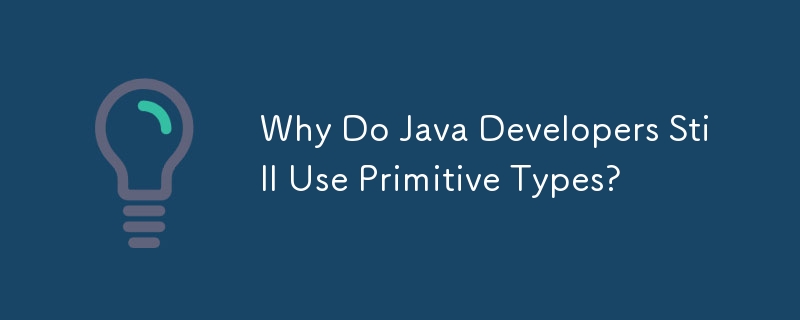

Unveiling the Persistence of Primitive Types in Java
Despite advancements in Java since version 5, some developers continue to utilize primitive types over their object-oriented counterparts. This choice raises the question: why do people still use primitive types in Java?
Performance Considerations
One tangible benefit of primitive types lies in their efficiency. Autoboxing and unboxing, the process of converting between primitive types and their corresponding wrapper classes, can introduce overhead. Therefore, using primitive types directly can optimize performance, as exemplified by the notable reduction in runtime in Joshua Bloch's code example.
Value Equality
Primitive types provide a simpler mechanism for value equality testing compared to their object-oriented counterparts. The equality operator (==) directly compares the values, whereas .equals() is a slower, object-oriented method. This difference can be particularly relevant for performance-sensitive applications.
Cache Optimization
For primitive types in the range [-128, 127], the JVM employs a cache to enhance performance. When using these values, the JVM returns the same object reference, reducing memory overheads. However, using values outside this range creates new objects, a behavior that can lead to unexpected results.
Conclusion
While object-oriented wrapper classes offer convenience and additional functionality, primitive types remain a viable option in Java for specific scenarios. Their performance advantages and simplified value equality testing, particularly for common values, make them a valuable tool in the Java developer's arsenal.
The above is the detailed content of Why Do Java Developers Still Use Primitive Types?. For more information, please follow other related articles on the PHP Chinese website!




